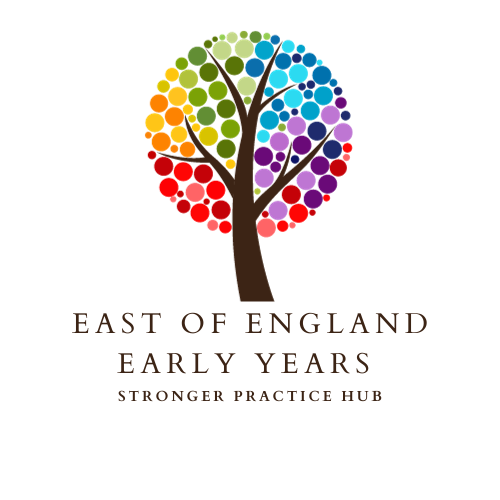By Natasha Trinder
An early years manager, and a partner in the East of England Early Years Stronger Practice Hub
Early years settings are wonderful places to learn and grow. As an early years manager and educator, it is a real privilege to be part of and observe a child’s learning journey throughout their earliest years.
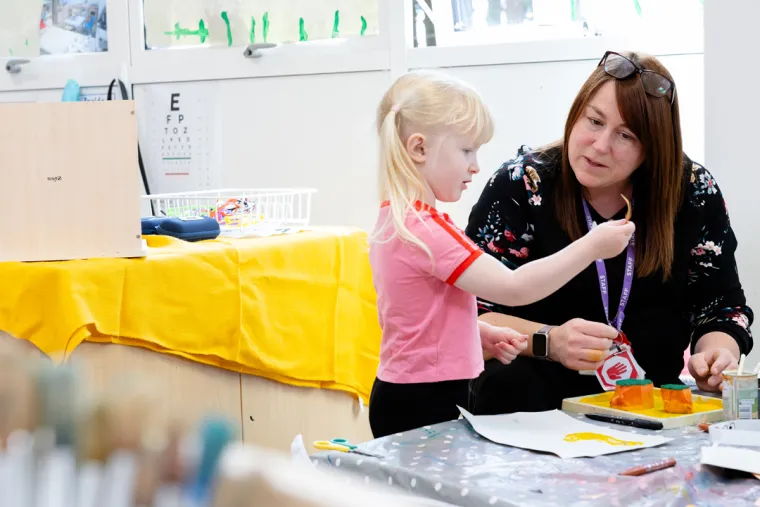
As we know, for some children starting at an early years setting, this can be an unsettling time. Learning new routines, knowing where the toilets are, how or where to wash your hands, hanging up your coat and meeting new children and staff can be really daunting.
Encouraging warm and affirming parental partnerships alongside the key person are crucial at this early stage, asking those fundamental questions helps us to get to know the child. Some of these questions will be around independent self-help skills, this important information will support our knowledge of what they can already do and what they are still learning to do. As educators we play a vital part in empowering children to become confident independent learners so it is crucial that we get to know the children in our settings really well.
The Education Endowment Foundation(EEF) Early Years Toolkit has summarised approaches and practices to support children’s self-help skills and have recommended aims to support children’s wellbeing, health and safety and promoting children’s growing independence skills. It is accessible and easy to read, and presents key messages supported by research.
‘There is evidence that promoting self-care can improve children’s outcomes such as their knowledge, attitudes and some behaviours. Research explored three broad types of self-care that educators encourage: healthy habits, hygiene habits and safety habits. In the research we explored, educators used similar practices and activities across the three types of self-care to improve children’s outcomes’
EEF Early Years Toolkit Self-regulation strategies | EEF(educationendowmentfoundation.org.uk)
Healthy Habits - Oral Health
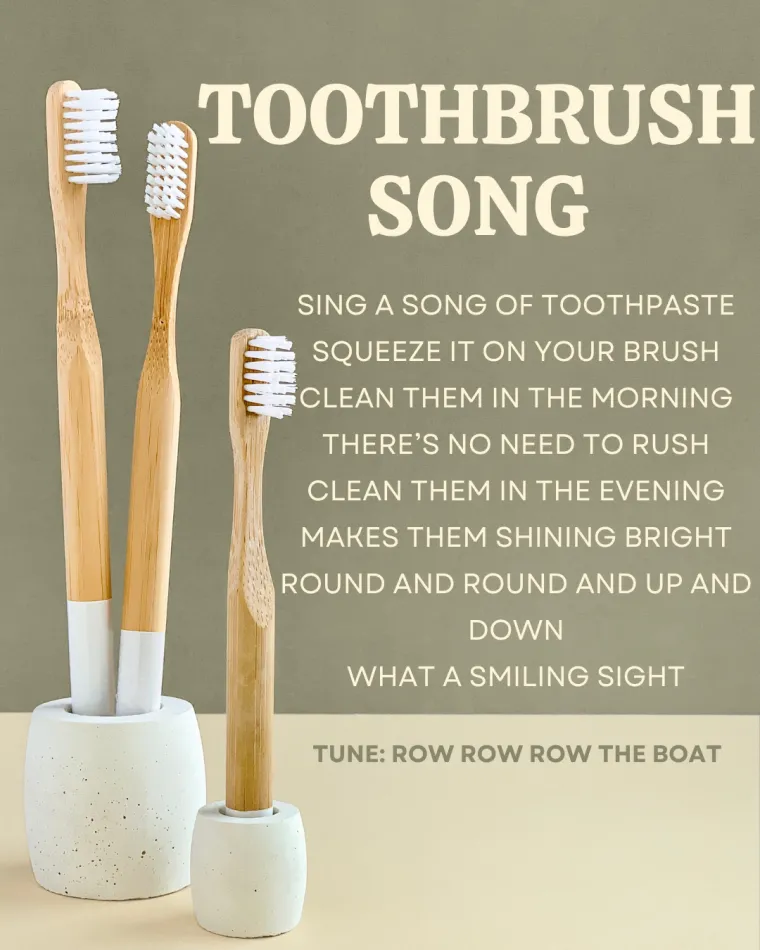
The EYFS framework states that Early Years providers ‘must promote good health, including the oral health, of the children they look after’ (EYFS statutory framework for group and school-based providers paragraph 3.51)
Early years settings can provide many activities and experiences to encourage and promote oral health. At Highfield we introduced a tooth brushing song which has been a real success. The song is repetitive and interactive and has introduced new language building on the foundation for future learning. Sharing this song and resources with parents on our Famly app also means we can work together to support healthy habits at home.
‘I asked my child about the toothbrush song this evening when brushing his teeth. He got me to sing it for him while he brushed and laughed hysterically when I got it wrong. He was very proud when singing’ A parent.
A national programme has been rolled out to support early years settings to support children’s oral health. This programme is part of the Governments ‘Plan to Change’ document and helps hundreds of thousands of children to develop positive brushing habits.
https://www.gov.uk/government/news/supervised-toothbrushing-for-children-to-prevent-tooth-decay
https://help-for-early-years-providers.education.gov.uk/health-and-wellbeing/oral-health
Healthy Habits - Healthy Eating
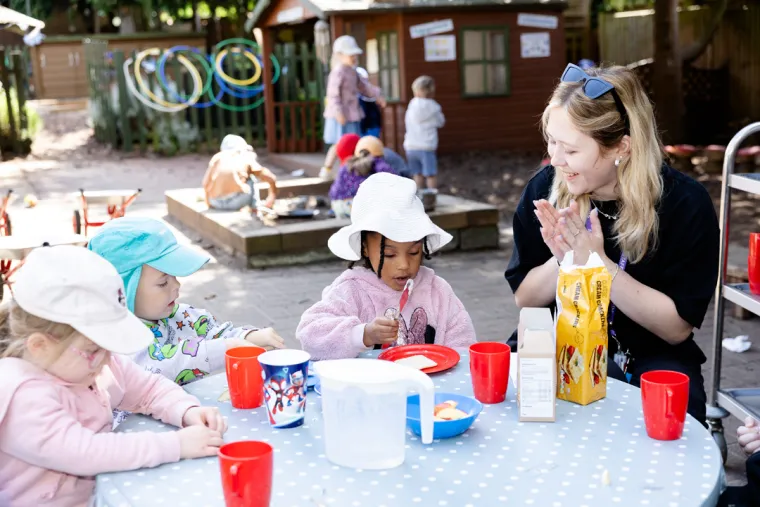
As Early Years professionals we understand that establishing healthy habits from an early age is crucial to a child’s development and overall growth. Many children in early years settings will eat most of their meals with us which places lots of different demands on staff.
In our busy environments it can be very easy to look at meal times as a task that needs to be completed quickly rather than looking at it as an opportunity to learn new skills and language and become an integral part of the curriculum.
Introducing stories, songs or rhymes to your meal times can support children understanding of different types of food. Growing vegetables or fruit inside or outside is a great way to show children the cycle of planting, growing and eating. Think about developing your role play area introducing a fruit and vegetable shop or supermarket. If children can start to understand where their food comes from and what happens to it once they have eaten in, they are starting to understand the concept of inputs and outputs in a very simple and meaningful way.
The Department for education has released several resources, activities and advice to enhance nutrition in the early years.
‘From September 2025, there is a new requirement in the Early Years Foundation Stage (EYFS) statutory framework that early years providers ‘should’ have regard to the new nutrition guidance on GOV.UK.
‘Providers must take this into account and should follow it unless there is a good reason not to’.
Help for early years providers offers additional information and resources which can help support practitioners meet the EYFS requirement that states:
‘Where children are provided with meals, snacks and drinks, these must be healthy, balanced and nutritious’.
Hygiene Habits - Toilet Training
Early Years setting’s play an important role in supporting children toilet training. As professional’s we are sometimes the first people to guide parents on when and how to start the process of toilet training. Every child is unique and some children will learn this new skill quickly and easily whereas other children may take longer.
Tiny Happy People have shared some tips and advice around children with additional needs: https://www.bbc.co.uk/tiny-happy-people/articles/zbq8mbk
‘Almost all children can learn to be clean and dry. Children with an additional need or a disability may take a little longer and need more support, but the process is essentially the same.’
The Department for Education has produced some really helpful resources and articles to support toilet training in Early Years settings.
https://help-for-early-years-providers.education.gov.uk/health-and-wellbeing/toilet-training
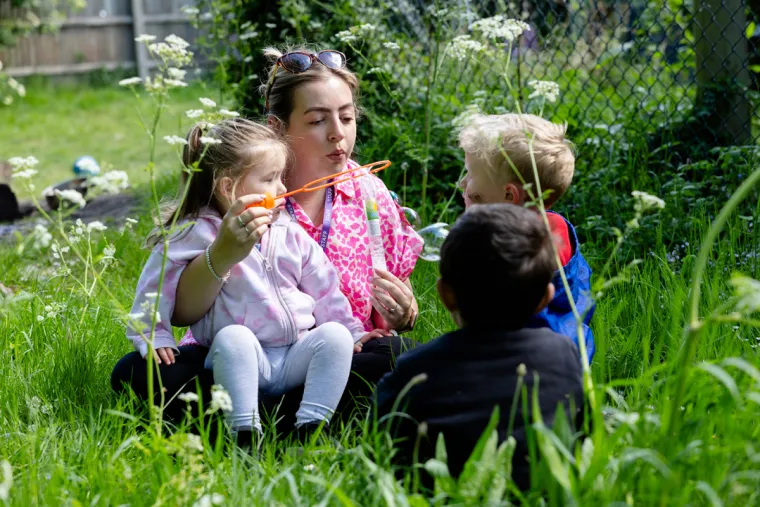
When a child is ready for that next stage of toilet training the keyperson at Highfield works really closely with parents to ensure the child is supported, comfortable and where possible the same routines are followed at home and nursery. We use a range of different visual aids, books, songs and rhymes to ensure toilet training is a positive experience.
Safety Habits - Online Safety
It may feel like it's too early to have conversations with children about keeping safe online and using social media in a healthy way, however, we know that with the sheer number of sites young children are using - YouTube, Snapchat, TikTok as well as Roblox games and many more.
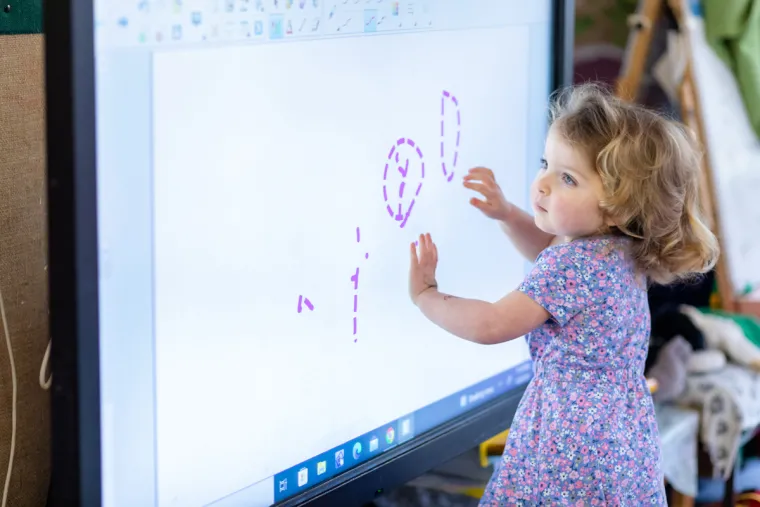
We know that children are curious about the digital world they are surrounded by and many know how to use phones and tablets, so it is never too young to start thinking about safety habits online. As practitioners and educators, it is vital that we support children and parents to build healthy relationship with social media.
This could be done by sharing online safety information with parents via newsletters.
The NSPCC have produced information around having those first conversation with children.
‘Children are growing up in a time where screens are everywhere and the internet plays a big part in their lives, even from a very young age. This can be beneficial, they can learn new things, connect with friends and family, and have fun. But it's important to have conversations on how to explore the online world safely’
https://www.nspcc.org.uk/keeping-children-safe/support-for-parents/techosaurus/
Internet Matters recognise that children are accessing digital media before the age of 5, so have produced a really good series of videos to support parents with young children.
Early years online safety video guides | Internet Matters
Interactive books are a useful tool to use with children. 'Chicken Clicking 'by Tony Ross(2014) looks at online friendships that may not be all they initially seem. This book is shared with families as part of our home nursery book library.
#Goldilocks is another excellent resource for young children and their families. Updating the traditional story for the digital age, Jeanne Willis and Tony Ross are helping Vodaphone share a message about responsible social media use. #Goldilocks: A fairy tale for the digital age
Strand 6 of the Evidence Store’s Personal, Social and Emotional Development links to self-care. Key finding include:
- Promoting healthy habits can improve children’s knowledge about food and their willingness to try new foods. Improving children’s diet may require involvement from parents to be successful.
- Promoting exercise typically increases the time children spend being physically active.
- There is promising evidence that promoting hygiene habits can improve children’s understanding of the importance of hygiene and behaviours such as cleaning their hands effectively.
- Promoting safety habits can improve children’s knowledge and understanding of risks and ways to keep themselves safe.
- Self-care may be more effective when educators support children to practice regularly, consistently and as part of everyday routines.
- Self-care may also be more effective if parents help promote good habits as well as educators.
You can read the strand 6 summary here: EEF| Personal Social and Emotional Development
For more information about how educators can help children to care for themselves, we encourage you to explore the rest of the Personal, Social and Emotional Development (PSED) theme, as well as the Physical Development theme and our Mental Health and Wellbeing summary.
